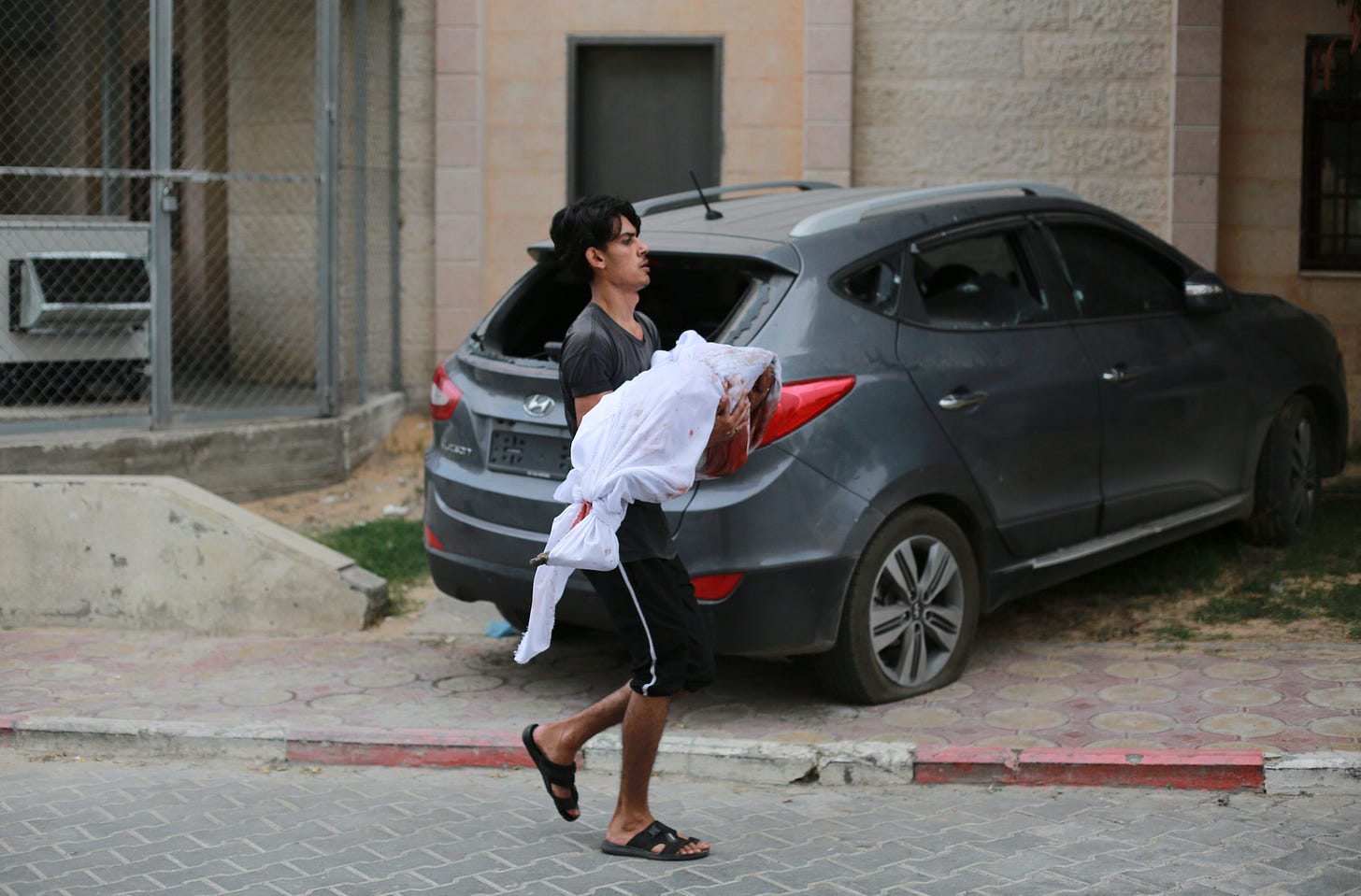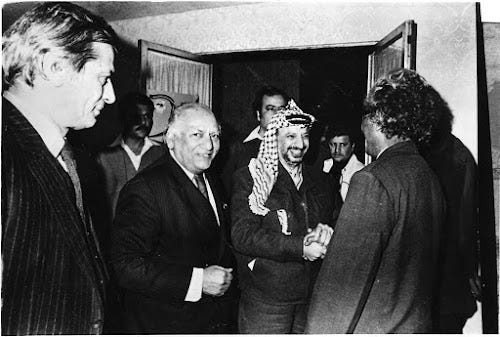Israeli terrorists assassinated Palestinian resistance leader Saleh al-Arouri along with six others in a drone attack on January 2 in Beirut, Lebanon. The killing in the Lebanese capital marks a dangerous escalation by the Zionist regime in its genocidal campaign in Gaza that started on October 7. Al-Arouri was the chief negotiator for Hamas in their talks with the Israelis for a prisoner exchange between the two parties; his assassination goes to show Israel’s seriousness in those negotiations.
The Zionists are also bombing Syria and aiding the Americans in their war on Iraq, which is now in its third decade. A day after al-Arouri’s killing, a terrorist attack near the tomb of former Irani General Qassem Soleimani killed nearly 100 people. The Iranians have blamed the US and Israel for the attack.
The terrorists in the Israeli government realise the gravity of their deeds and are feigning ignorance about al-Arouri’s killing.
Mark Regev, the foreign media spokesperson for Benjamin Netanyahu, made a cowardly attempt to mask the Israeli fingerprints on al-Arouri’s murder and, fearing reprisals from the Lebanese resistance fighters, emphasised that it wasn’t an attack on Hizballah.
Regev on MSNBC: “Obviously, in Lebanon, there are many Hizballah targets, but whoever did this strike was very surgical and went for a Hamas target…whoever did this has a gripe with Hamas. Once again, whoever did this, it’s not an attack on the Lebanese state, it’s not an attack on the Hizballah terrorist organisation, whoever did this, it’s an attack on Hamas. That’s very clear.”
Israel has a long history of atrocities in Lebanon. Al-Aruri’s killing in the Lebanese capital is just its latest chapter, the darkest of which was the massacres at the Sabra and Shatila refugee camps in Southern Lebanon in 1982 when Israeli-funded and trained Christian militias massacred between 2,000 and 3,500 Palestinian refugees — exiled from their homeland by the Zionists during the 1948 Nakba — from September 16-18 in coordination with the Israeli military. On September 15, the Israeli military, led by Ariel Sharon, invaded Beirut and prevented refugees from leaving their camps before allowing Phalange, the Christian militia, to carry out the massacre.
The massacre followed the withdrawal of the Palestinian Liberation Organisation (PLO) from Lebanon. The PLO, a coalition of Palestinian political groups, operated from Beirut from 1970 until August 1982, when they left after a deal with multinational forces. The United States, one of the parties to the deal, assured protection for the refugees in Palestine after the PLO’s withdrawal, which was completed by September 1.
However, just two weeks later, the US’s favourite ally, Israel, let the whole world know the worth of American promises with its butchery unleashed on the defenceless and helpless Palestinians.
The Israelis went on to occupy Southern Lebanon from 1985 until 2000.
Faiz Ahmad Faiz (1912-84), a revolutionary and giant of Urdu poetry, lived in self-imposed exile in Beirut towards the latter part of his life. He landed in the Lebanese capital in 1978 after fleeing political persecution in Pakistan. Within four years, he had to flee again, this time to escape the Israeli invasion.
During his time in Beirut, he edited a magazine named Lotus and grew intimate with Palestinian exiles in Lebanon. He was friends with Yasser Arafat. When Faiz was asked what Palestine meant to him, he responded: “After all these years that I spent with the Palestinians, I became one of them.”
Perhaps it was his intimacy with Palestinians, forged by his proximity, living and working alongside them, that enabled Faiz to capture the meaning of Palestine for an exiled Palestinian exile in a beautiful poem that he titled Falastini shuhada jo pardes me kaam aaye (Palestinian martyrs who died abroad).
Here’s the transliteration from the original in Urdu, followed by the translation (my own) into English. (I hope you can forgive me for my inability to capture the lyrical beauty of the Urdu verse.):
Falastini shuhada jo pardes me kaam aaye
(Palestinian martyrs who died abroad)
main jahan par bhi gaya arz-e-vatan
teri tazlil ke daaghon ki jalan dil me liye
teri hurmat ke charaghon ki lagan dil me liye
teri ulfat teri yaadon ki kasak saath gai
tere naranj shagufon ki mahak saath gai
saare andekhe rafiqon ka jilau saath raha
kitne haathon se ham-aaghosh mera haath raha
duur pardes ki be-mehr guzargahon me
ajnabi shahr ki benaam-o-nishan raahon me
jis zamin par bhi khila mere lahu ka parcham
lahlahata hai vahan arz-e-Falastin ka alam
tere aada ne kiya ek Falaston barbaad
mere zakhmon ne kiye kitne Falastin aabaad
///
Wherever I went, my beloved land,
I carried the pain of your humiliation burning in my heart
I carried the light of your dignity in my heart
I carried the pain and intimacy of your memory with me
I carried the fragrance of your oranges with me
the company of all the unseen friends accompanied me
how many hands were embraced in mine
in the thankless pathways of the distant lands
in the unnamed streets of unfamiliar cities
wherever my blood blossomed as a standard
blossomed there the pain of Palestine
Your enemies have destroyed one Palestine
my wounds have populated innumerable Palestines
Your support is invaluable for this newsletter. If you enjoyed the read, I would greatly appreciate if you left me a tip here, so that I may continue researching, writing, and bringing you interesting stories like this one.
Alternatively, you can show your support with a monthly/yearly/founder pledge. Thank you.








Mashallah ❤️
Love your work ! Anyone reading this that's not broke should buy this dedicated artist a ☕.
Have a good day PWEF